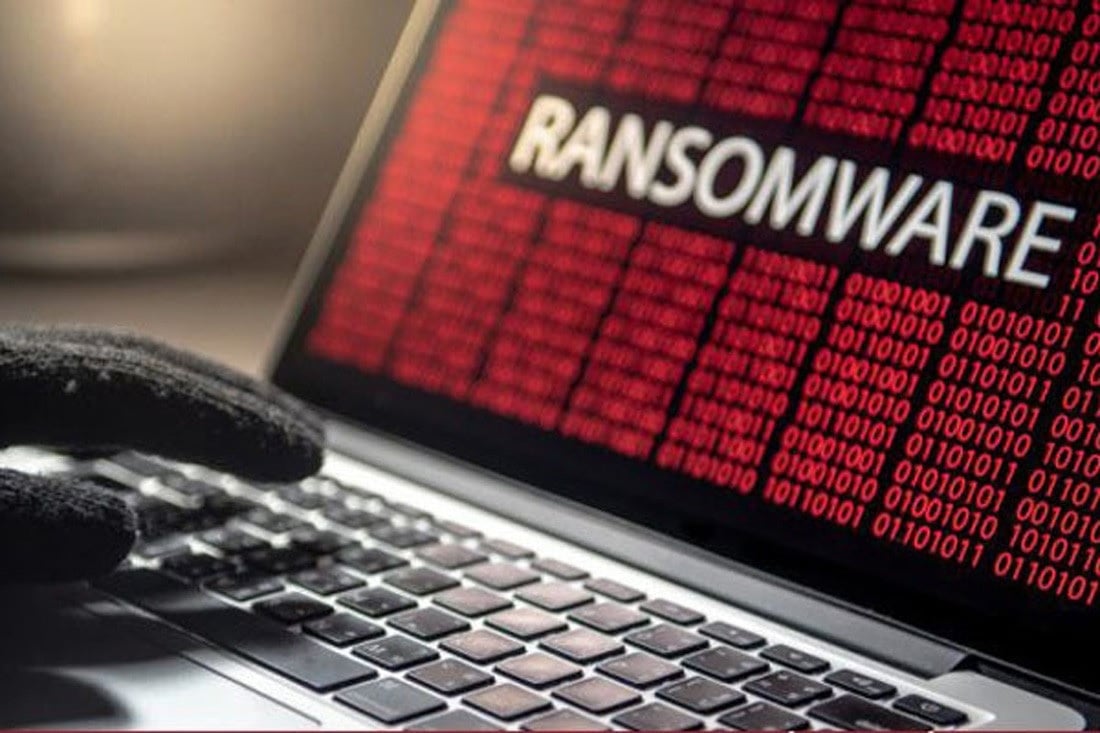The pitfalls of downloaded files
Nguyen Hoang, an advertising employee in Nha Trang, said that after downloading a converted PDF file from a free file conversion website, his computer started running slowly and constantly displayed warnings from his antivirus software. "I never expected using a free file conversion tool to cause such trouble," Hoang shared.
Cybersecurity experts from the Cyber Security and High-Tech Crime Prevention Department of the Provincial Police warn that many online file conversion services, especially those from unknown sources, may embed malware into the resulting files. A seemingly harmless PDF file could contain trojans, spyware, or ransomware – "silent enemies" that wreak havoc on devices. Spyware can silently record every keystroke, from bank passwords to personal messages. More dangerously, ransomware can lock data and demand ransom in cryptocurrency, leaving users in a dilemma. According to the latest report from the National Cyber Security Monitoring Center (NCSC), in the first quarter of 2025, Vietnam recorded more than 15,000 ransomware attacks, causing estimated losses of billions of VND, a 20% increase compared to the same period in 2024.
 |
| Be cautious when using free online file conversion tools. (Illustrative image) |
When users upload a file for conversion, whether it's a business contract, invoice, or photo of an ID, information such as name, national ID number, address, or bank account details are at risk of being extracted without the user's knowledge. Many disreputable websites lack clear privacy policies, turning user data into "commodities" on the dark web. A set of personal information, including email, phone number, and password, can be sold for as little as $1-$2, but the consequences for victims are immeasurable: from phishing messages and identity theft to bank account hijacking.
Another common scam involves creating fake URLs. Hackers often copy the interface of reputable services, changing a small character in the web address, such as changing "convertio.co" to "c0nvertio.co," to deceive unsuspecting users. A single wrong click can lead to downloading a malicious file or inadvertently providing information to the attackers. According to statistics from Google Safe Browsing in early 2025, over 10 million monthly visits globally were directed to these types of phishing websites, with Vietnam ranking among the top 10 most affected countries. The preference for free services among many Vietnamese people inadvertently creates opportunities for these scammers to exploit. Warning signs for these websites include: lack of contact information, no clear privacy policy, or requiring users to install additional software before use. Some fake websites even use artificial intelligence (AI) to analyze user data and automatically create phishing campaigns. For example, after collecting information from user-uploaded files, malicious actors can send fake bank emails or personalized SMS messages, making it easy for users to fall into the trap.
Protecting yourself in the digital world.
To protect themselves, users should use online file conversion services from reputable brands such as Adobe Acrobat Online, SmallPDF, and ILovePDF, which have strict security policies and are highly rated for safety. They should avoid converting files containing important information such as contracts and personal documents. Users should use offline software such as Microsoft Office, LibreOffice, or Foxit Reader. Furthermore, always carefully check URLs before clicking, use tools like Google Safe Browsing or VirusTotal to verify safety; install antivirus software such as Kaspersky, Malwarebytes, or Bitdefender, which can detect and disable malware from downloaded files; ensure the operating system and software on the device are always updated with the latest security patches to minimize vulnerabilities; and regularly back up important data to an external hard drive or reputable cloud services such as Google Drive or Dropbox to avoid loss in case of ransomware attacks.
JACKIE CHAN
Source: https://baokhanhhoa.vn/xa-hoi/202504/can-trongvoi-cong-cu-chuyen-doi-file-mien-phi-14d3abb/






![[Photo] Prime Minister Pham Minh Chinh attends the Conference on the Implementation of Tasks for 2026 of the Industry and Trade Sector](/_next/image?url=https%3A%2F%2Fvphoto.vietnam.vn%2Fthumb%2F1200x675%2Fvietnam%2Fresource%2FIMAGE%2F2025%2F12%2F19%2F1766159500458_ndo_br_shared31-jpg.webp&w=3840&q=75)






























































































Comment (0)